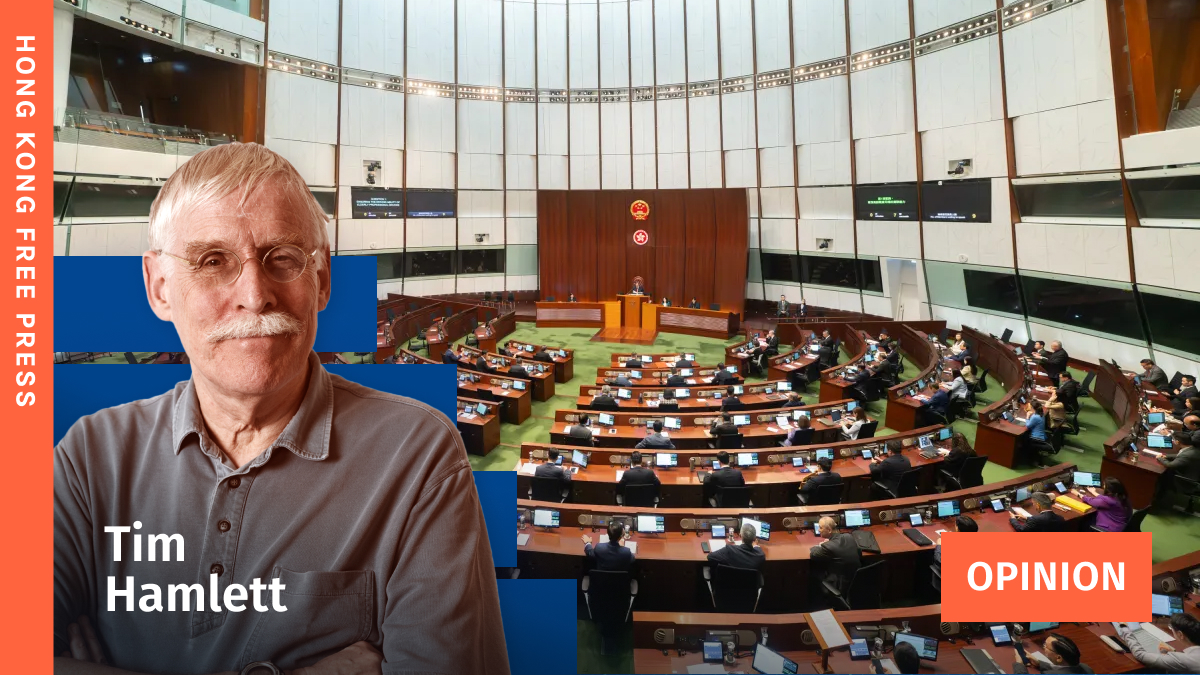By Tim Hamlett
Copyright hongkongfp

The continuing controversy about the recognition of same-sex marriages conducted overseas is depressing.
After all, underneath all the political and legal skirmishing, what we have here is a government with few limits on its power, which is exerting itself vigorously to curtail the rights of a tiny minority. Do you know any same-sex married couples? Not quite. Neither do I.
Interpretations of the saga vary widely. Pretty much everyone agrees that the original judgment of the Court of Final Appeal – that the government was at fault for not recognising in some way the status of same-sex couples – came as an unpleasant surprise.
The government has had considerable success in persuading our supposedly independent judiciary to lend a receptive ear to its legal efforts, however questionable. We are regularly reassured about judicial independence. Indeed, this happens so often that the standard reactions tend to run from Hamlet’s mother (“The lady doth protest too much”) to Mandy Rice-Davis (“He would say that, wouldn’t he?).
Anyway, a rare moment of judicial innovation, cushioned by the provision of a two-year deadline.
Needless to say, most of the two years passed with no sign of thought or action. As a journalist, I am in no position to criticise this: in our business, waiting until the deadline looms is common, if not compulsory.
British journalist Bernard Levin actually wrote an amusing piece about his work as a theatre critic, in which the review had to be delivered the same evening of the performance, but the deadline varied depending on the amount of advertising in the newspaper.
Mr Levin noted that if advertising was abundant and the deadline was early, he got down to work as soon as he returned to the office. If advertising was short and the deadline late, on the other hand, he wandered round the office cadging biscuits and distracting colleagues until time and adrenaline prompted the writing of the necessary piece.
So no complaints from me about the delay. Actually, there seem to be very few things the Department of Justice can do in less than two years, no doubt a tribute to the care devoted to its work.
And this brings us to the resulting proposed piece of legislation, which would have given same-sex spouses the right to authorise medical procedures and decide on the disposition of the remains of deceased partners.
This did not sit well with the government’s usual supporters (nobody else is allowed in Legco), who vetoed it last week.
At this point, views diverge considerably. Some take the cynical view that the same-sex partnership bill was never intended to pass and the LegCo proceedings were a charade intended to put the judges in their place, while demonstrating that the council was “not a rubber stamp.”
A more idealistic view has it that the decision was a fine example of the legislature performing its allocated function under the “separation of powers,” a constitutional theory routinely denounced as inapplicable to Hong Kong by Beijing officials in the past.
Personally, I find both views unconvincing. Clearly, the officials responsible for getting the bill through LegCo wanted it to pass. Whatever positive spin could be put on failure afterwards, it would still be a failure. I believe also that the government wanted it to pass.
The trouble is that “want” in the English language covers a lot of territory, from “Do you want sugar in your tea?” to “Do you want your cancerous foot amputated?” There was desire, but not too much desire.
Consequently, legislators knew what they could get away with. They know that if a recalcitrant group is large enough, there will be no consequences. Difficult individuals will not be re-elected, but a mass clear-out would reveal too many of the strings behind the puppet show.
In fact, it seems that the fun involved in a display of independence may have been the main motivation. None of the other reasons given stands up to scrutiny. The idea that the electorate in general has strong views on the topic is obvious nonsense, and in any case, legislators do not depend on the electorate any more.
It may be that same-sex marriage is a cause of horror and revulsion among Democratic Alliance for the Betterment and Progress of Hong Kong (DAB) voters, but they are hardly typical. The average age of those busloads turning up at polling booths is somewhere between 80 and dead.
I can find no support for the claim that traditional marriage is the only kind allowed by the Basic Law, whose thoughts on marriage are contained in Article 37: “The freedom of marriage of Hong Kong residents and their right to raise a family freely shall be protected by law.”
However, all is not lost. Generally, courts will not require people to do what they cannot do. If LegCo will not pass a bill, that is not the government’s fault. That does not, though, mean the government can sit back and claim that it has fully complied with the court’s order on this topic.
LegCo President Andrew Leung commented after the fatal vote that “making laws” was “not the only solution.” Chief Executive John Lee said that the government would explore “administrative means” of complying with the court’s ruling.
Could there, one wonders, be any objection to the government saying that, as a matter of administrative practice, marriages lawfully registered overseas would be recognised in Hong Kong regardless of the sex of the parties concerned – a line already followed in housing and visa matters?



